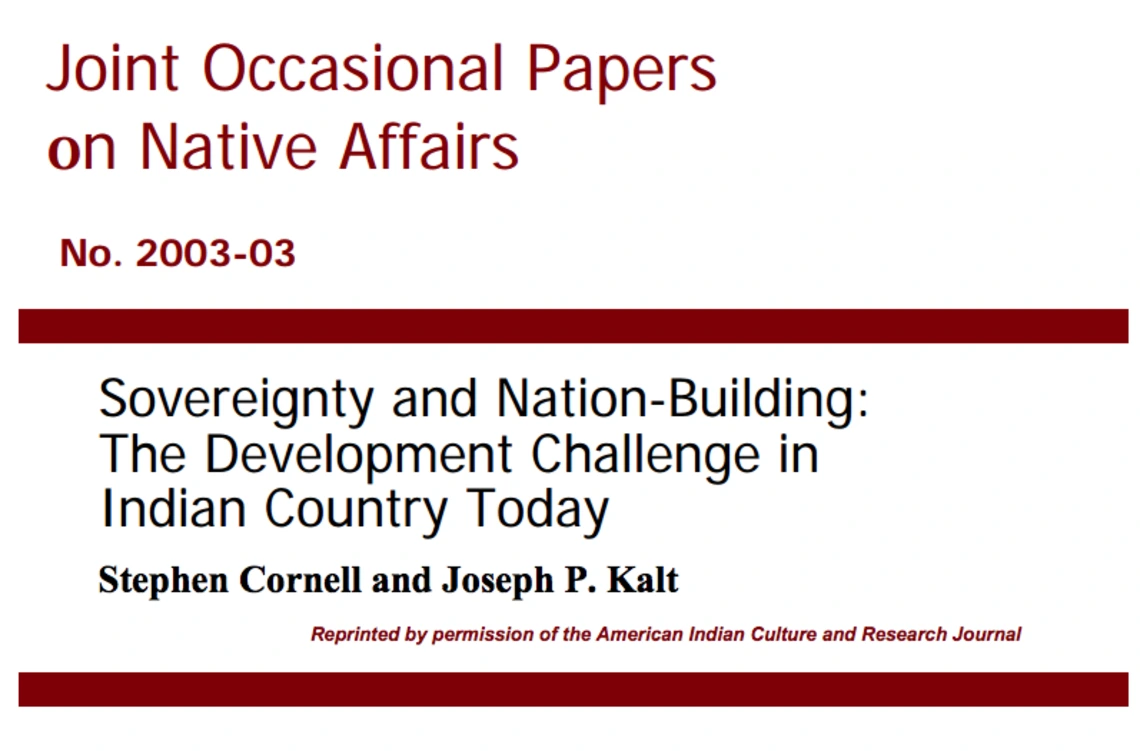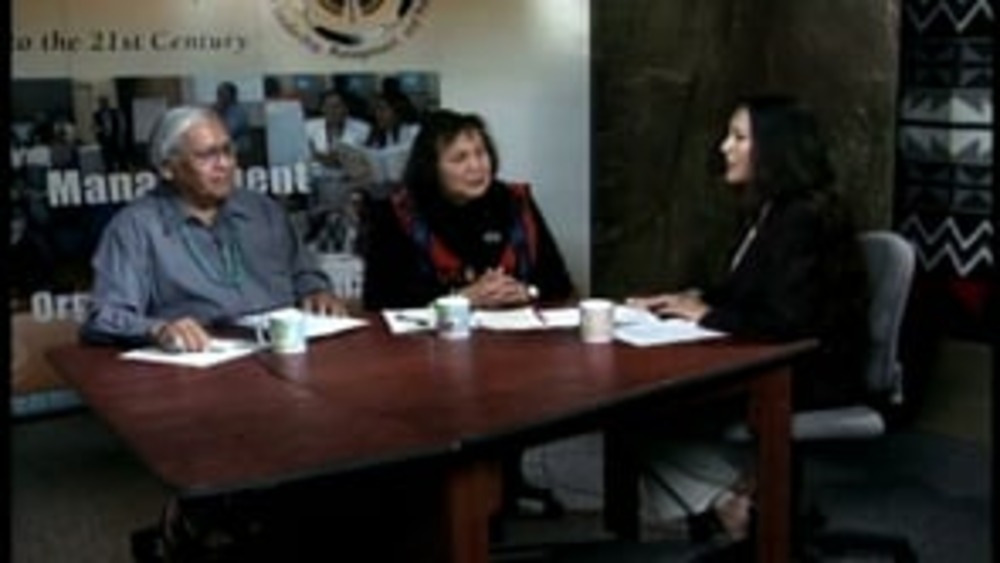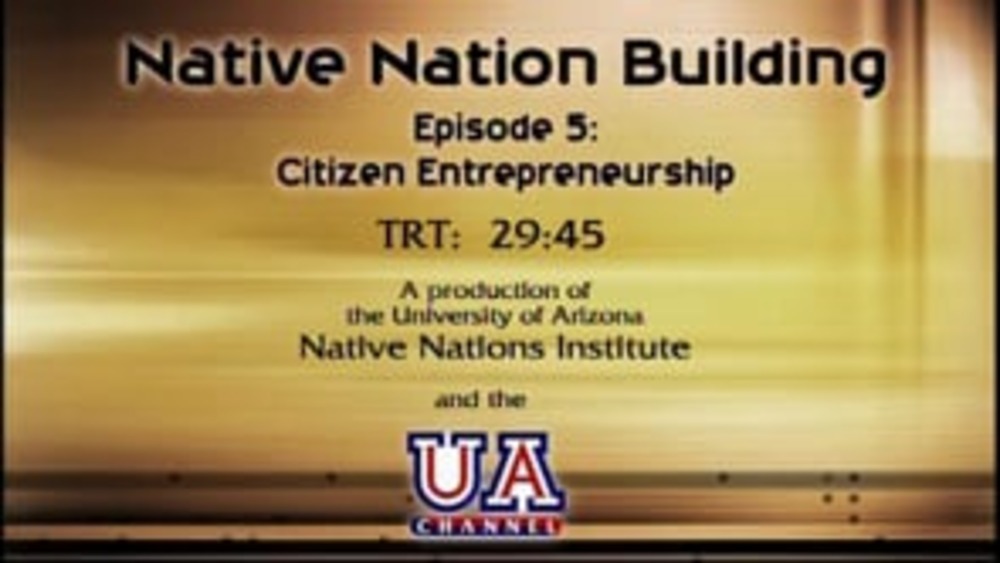The Indian nations of the United States face a rare opportunity. This is not the occasional business opportunity of reservation legend, when some eager investor would arrive at tribal offices with a proposal guaranteed to produce millions of dollars for the tribe--although such investors still appear, promises in hand. Nor is it the niche economic opportunity of gaming, although that has transformed some tribes' situations in important ways. This opportunity is a political and organizational one. It is a chance to rethink, restructure, reorganize--chance not to start a business or exploit an economic niche but to substantially reshape the future. It is the opportunity for nation-building.
Additional Information
Cornell, Stephen, Joseph P. Kalt. "Sovereignty and Nation-Building: The Development Challenge in Indian Country Today." Joint Occasional Papers on Native Affairs No. 2003-03. The Harvard Project on American Indian Economic Development, Native Nations Institute for Leadership, Management and Policy, The University of Arizona. Tucson, Arizona. 2003. JOPNA.



